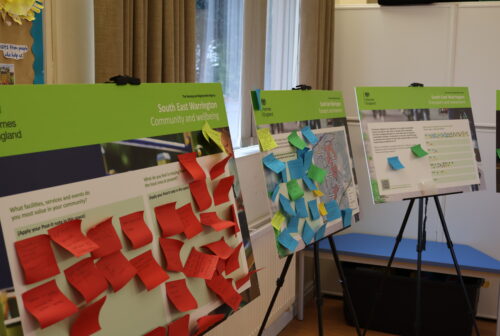Major evolution set for Cheshire and Warrington

A significant shift in local governance is on the horizon for Cheshire and Warrington, as councils across the region move closer to establishing a new Mayoral Combined Authority (MCA). This represents one of the most substantial changes to local government structure in the area for decades, promising enhanced local decision-making powers and substantial investment opportunities.
The vote and timeline
The journey towards devolution gained momentum during Warrington Borough Council’s Full Council meeting, where councillors endorsed the establishment of an MCA for Cheshire and Warrington in principle. Cheshire West and Chester Council backed the agreement on 9th September, with Cheshire East Council voting on 17th September and Warrington’s Cabinet taking a final vote on 22nd September.
If approved, the Mayoral Combined Authority will become operational by early 2026, serving over one million residents. The first mayoral election is scheduled for May 2027.
Financial investment and opportunities
The devolution agreement proposes over £650 million of investment across the next 30 years, subject to final approval by all councils. This significant injection of resources into transport infrastructure, housing development, skills training and economic growth initiatives could prove transformative for the region.
Implications for development and growth
The MCA could streamline governance structures, leading to faster decision-making on planning applications, infrastructure projects and housing developments. Local priorities may carry greater weight, ensuring Cheshire and Warrington communities’ specific needs are better reflected in policy outcomes.
Investment in transport and infrastructure could unlock previously unviable development areas, making new residential and commercial projects feasible whilst improving connectivity within the region and to neighbouring areas.
Enhanced funding for skills and training programmes could help address local labour supply challenges, particularly benefitting the construction sector crucial to regional development.
Case study – Homes England
The MCA structure could facilitate strategic approaches to housing allocation, leading to new development zones that serve regional needs whilst maintaining local character. Meeting Place is currently supporting Homes England on exactly this type of comprehensive engagement programme through the South East Warrington Urban Extension project.
This major development, which will deliver approximately 4,200 new homes alongside schools, healthcare and community facilities, demonstrates the importance of inclusive consultation. Meeting Place has implemented a multi-channel engagement strategy including online mapping, social media, virtual briefings and interactive events to ensure all demographics shape their local area’s future. The consultation period has been praised by Warrington Borough Council members for its exceptional level of resident collaboration – an approach that will prove invaluable as the MCA structure develops.
Challenges and considerations
The devolution deal still requires formal approval from each council, and concerns have been raised by rural and smaller communities about being overlooked in favour of urban centres. These concerns may influence where development is focused, requiring careful consideration to ensure all communities benefit from the new arrangements.
As the region stands on the brink of this significant governance change, the coming weeks will prove pivotal in determining whether Cheshire and Warrington can seize this opportunity to enhance local democracy whilst driving economic growth across the area.
